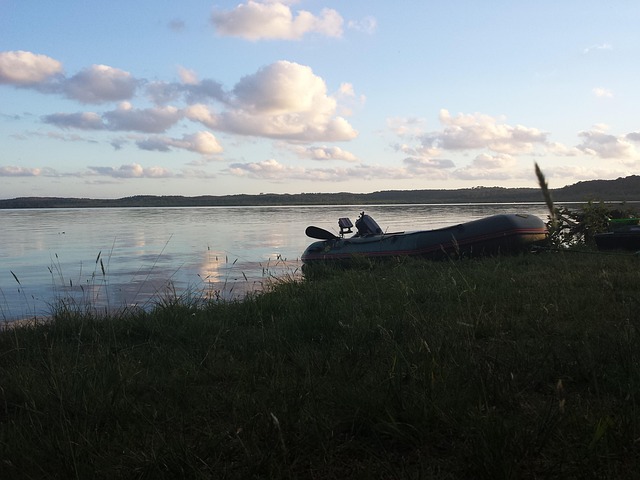Survivors of complex abuse within networks like CALO (Complex Abusive Lifestyle Organization) face unique challenges. The Change Academy at Lake of the Ozarks Institute (CALOI) Victims program offers specialized support to help them heal from psychological and emotional scars. This includes safe spaces for experience processing, tailored interventions like therapy and support groups, and addressing barriers to recovery such as lack of mental health access or social isolation. CALOI empowers survivors to break free from abusive patterns, reclaim their lives, and build resilience.
Resources for CALO Survivors: Navigating the Path to Healing and Empowerment
Complex Abusive Lifestyle Organizations (CALO) leave survivors with unique challenges, requiring specialized support. This article explores the resources available for CALO victims, focusing on understanding their specific needs and the empowering role of institutions like the Lake of the Ozarks Institute. We delve into local and national hotlines, tailored counseling, and support groups, while highlighting the transformative power of programs offered by the Change Academy at Lake of the Ozarks Institute, specifically designed to advocate for victims and foster personal growth.
- Understanding CALO Survivors and Their Unique Needs
- – Defining CALO (Complex Abusive Lifestyle Organization) and its impact on victims
- – Common challenges faced by survivors of abuse within these organizations
Understanding CALO Survivors and Their Unique Needs

Calo survivors of abuse often face complex and unique challenges due to their involvement with the Change Academy at Lake of the Ozarks Institute (CALOI) Victims program. This specialized resource centers around more than just physical healing; it addresses the psychological and emotional scars left by traumatic experiences. Understanding these survivors’ needs is paramount in providing effective support. Their journeys may involve overcoming feelings of shame, guilt, or trust issues stemming from their past interactions with the system.
Many Calo survivors require tailored assistance to rebuild their sense of safety and self-worth. This involves creating safe spaces where they can process their experiences without judgment. It also necessitates addressing potential barriers to their recovery, such as lack of access to mental health services or social isolation. Tailored interventions, including therapy, support groups, and community outreach, play a crucial role in empowering these individuals to reclaim their lives and move towards healing and resilience.
– Defining CALO (Complex Abusive Lifestyle Organization) and its impact on victims

Complex Abusive Lifestyle Organization (CALO) refers to a deeply ingrained and intricate network of abusive relationships, behaviors, and mindsets that can profoundly affect survivors. This phenomenon is often characterized by manipulative tactics, emotional control, and a system of beliefs that normalizes abuse. CALO victims may have been subjected to various forms of maltreatment, including physical, psychological, sexual, or financial abuse, over an extended period. As a result, they often experience severe trauma, low self-esteem, and difficulties in forming healthy relationships.
The Change Academy at Lake of the Ozarks Institute (CALOI) is dedicated to supporting victims navigating this complex landscape. Through specialized programs and resources, CALOI empowers survivors to break free from abusive patterns, rebuild their lives, and regain a sense of agency. Their approach focuses on individual healing, resilience-building, and fostering supportive communities for long-term recovery.
– Common challenges faced by survivors of abuse within these organizations

Many survivors of abuse who find themselves within organizations like the Change Academy at Lake of the Ozarks Institute face unique challenges on their journey to healing and recovery. One significant hurdle is the process of re-establishing a sense of safety and trust, especially in institutional settings that may echo trauma triggers. These individuals often require specialized support to navigate the complex emotions that arise when interacting with authority figures or structured environments.
Additionally, survivors may struggle with feelings of isolation and a lack of understanding from peers who haven’t experienced similar traumas. This can be exacerbated within organizational structures where social connections are primarily formed through shared activities or interests. Accessing resources tailored to their specific needs, such as trauma-informed care programs, peer support groups, and counseling services, is essential for their well-being.
Survivors of complex abusive relationships within organizations, such as those described as CALO (Complex Abusive Lifestyle Organization), face unique challenges. Understanding and addressing these needs is crucial for healing and recovery. The Change Academy at Lake of the Ozarks Institute offers valuable resources and support tailored to CALO victims, empowering them to break free from abusive cycles. By recognizing the impact of such organizations and providing targeted assistance, we can foster a supportive environment for survivors to rebuild their lives and create a brighter future.
